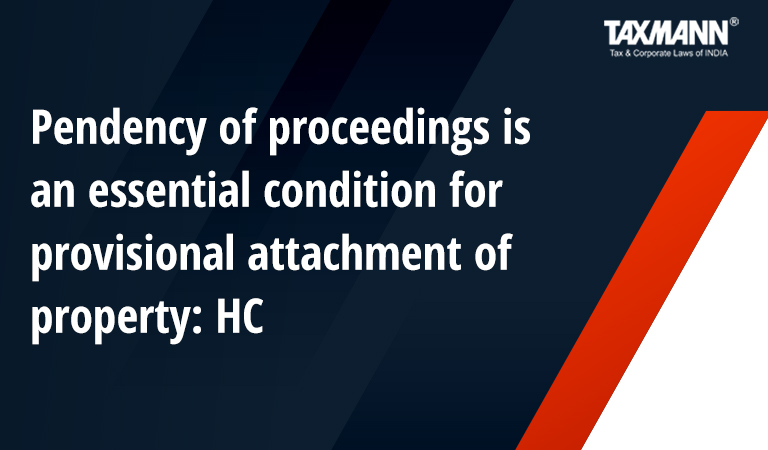Pendency of proceedings is an essential condition for provisional attachment of property: HC
- Blog|News|GST & Customs|
- 2 Min Read
- By Taxmann
- |
- Last Updated on 29 November, 2022

Case Details: Conceptial Trade v. State of Gujarat - [2022] 145 taxmann.com 184 (Gujarat)
Judiciary and Counsel Details
-
- N.V. Anjaria & Bhargav D. Karia, JJ
- Naman H. Kinkhabwala for the Petitioner.
- Krutik Parikh, AGP for the Respondent.
Facts of the Case
The petitioner was engaged in the business of trading products such as garments, footwear, etc. The department contended that the petitioner was found to be a part of the syndicate that claimed and availed the GST refund fraudulently without any business transactions by transferring the amount to the bank accounts. The petitioner’s bank account was provisionally attached on 06-01-2022 and he got to know about such an attachment through the bank. The department further issued summon to the petitioner on 21-02-2022 to appear before the authorities.
The petitioner filed a petition before the Ahmedabad High Court to set aside the provisional attachment order dated 06-01-2022 as there was no proceeding pending against the petitioner on the date of passing such an order.
High Court Held
The High Court held that the pendency of the proceedings is sine qua non for the exercise of powers of provisional attachment. This is because the powers under Section 83 can be invoked where there is a pendency of proceedings. Since no proceedings were pending on the date of passing the order i.e. 06-01-2022 and summon was issued later, the power to provisionally attach the property could not be invoked on the said date.
Given the above, the High Court set aside the above-said order and held that the respondent authorities may continue to proceed further pursuant to the summons and would be at liberty to impose the provisional attachment under Section 83.
Disclaimer: The content/information published on the website is only for general information of the user and shall not be construed as legal advice. While the Taxmann has exercised reasonable efforts to ensure the veracity of information/content published, Taxmann shall be under no liability in any manner whatsoever for incorrect information, if any.

Taxmann Publications has a dedicated in-house Research & Editorial Team. This team consists of a team of Chartered Accountants, Company Secretaries, and Lawyers. This team works under the guidance and supervision of editor-in-chief Mr Rakesh Bhargava.
The Research and Editorial Team is responsible for developing reliable and accurate content for the readers. The team follows the six-sigma approach to achieve the benchmark of zero error in its publications and research platforms. The team ensures that the following publication guidelines are thoroughly followed while developing the content:
- The statutory material is obtained only from the authorized and reliable sources
- All the latest developments in the judicial and legislative fields are covered
- Prepare the analytical write-ups on current, controversial, and important issues to help the readers to understand the concept and its implications
- Every content published by Taxmann is complete, accurate and lucid
- All evidence-based statements are supported with proper reference to Section, Circular No., Notification No. or citations
- The golden rules of grammar, style and consistency are thoroughly followed
- Font and size that’s easy to read and remain consistent across all imprint and digital publications are applied



 CA | CS | CMA
CA | CS | CMA
